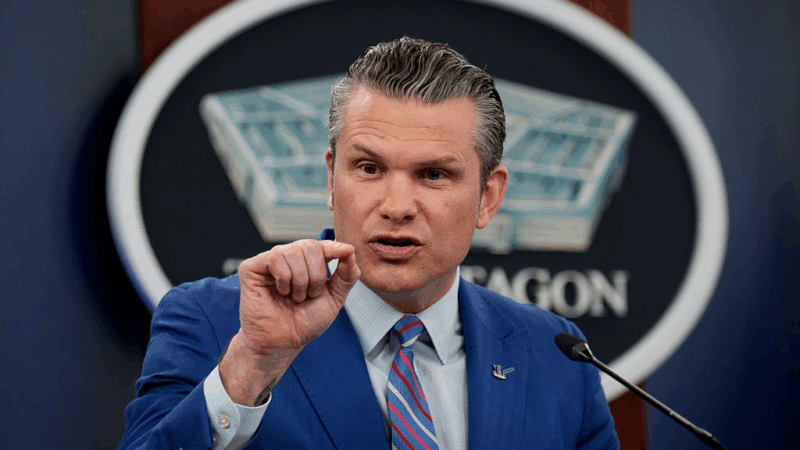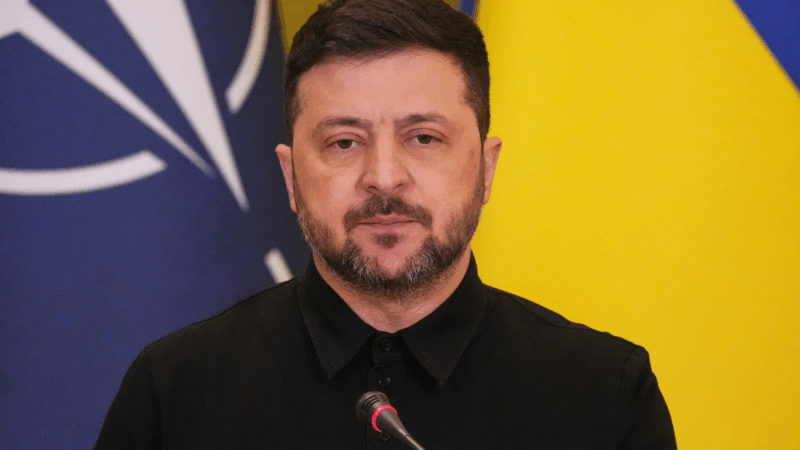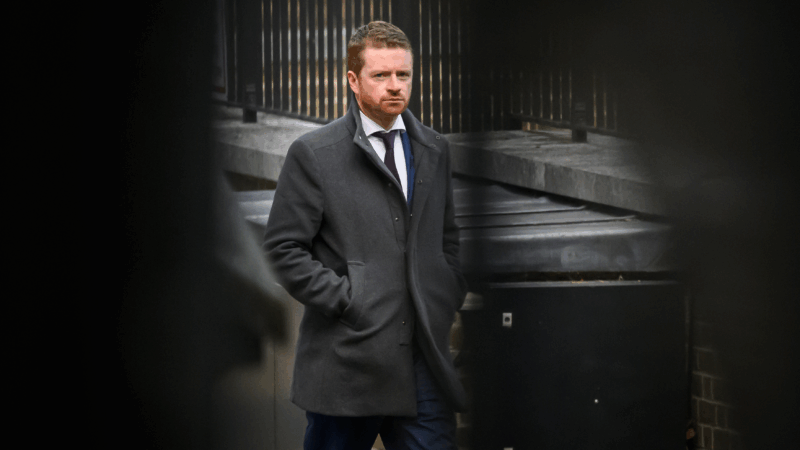Defense Secretary Hegseth requires new ‘pledge’ for reporters at the Pentagon
The Pentagon will drastically change its rules for journalists who cover the Department of Defense, two U.S. officials who are not authorized to speak publicly confirmed to NPR Friday.
Going forward, journalists must sign a pledge not to gather any information, including unclassified reports, that hasn’t been authorized for release.
The Pentagon says those who fail to obey the new policy will lose their press credentials, cutting off access to the headquarters of the largest department in the U.S. Government.
Writing about the shift, Defense Secretary Pete Hegseth posted on social media that, “The “press” does not run the Pentagon — the people do. The press is no longer allowed to roam the halls of a secure facility. Wear a badge and follow the rules — or go home.”
U.S. gave Ukraine and Russia June deadline to reach peace agreement, Zelenskyy says
"The Americans are proposing the parties end the war by the beginning of this summer," Zelenskyy said, speaking to reporters on Friday.
U.K. leader’s chief of staff quits over hiring of Epstein friend as U.S. ambassador
British Prime Minister Keir Starmer's chief of staff resigned Sunday over the furor surrounding the appointment of Peter Mandelson as U.K. ambassador to the U.S. despite his ties to Jeffrey Epstein.
Trump administration lauds plastic surgeons’ statement on trans surgery for minors
A patient who came to regret the top surgery she got as a teen won a $2 million malpractice suit. Then, the American Society of Plastic Surgeons clarified its position that surgery is not recommended for transgender minors.
What you should know about Bad Bunny’s Super Bowl halftime show
Will the Puerto Rican superstar bring out any special guests? Will there be controversy? Here's what you should know about what could be the most significant concert of the year.
Sunday Puzzle: -IUM Pandemonium
NPR's Ayesha Rascoe plays the puzzle with KPBS listener Anthony Baio and Weekend Edition Puzzlemaster Will Shortz.
Thailand counts votes in early election with 3 main parties vying for power
Vote counting was underway in Thailand's early general election on Sunday, seen as a three-way race among competing visions of progressive, populist and old-fashioned patronage politics.








